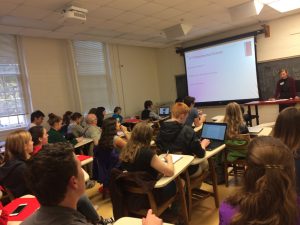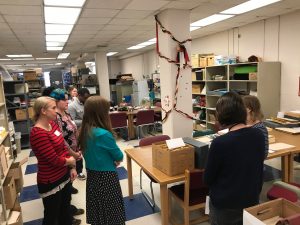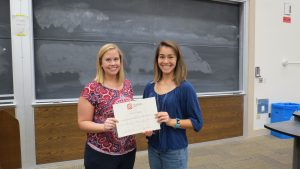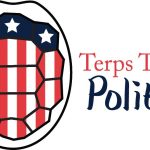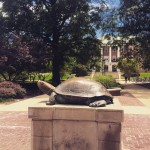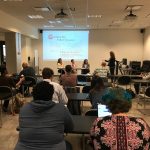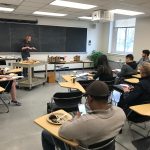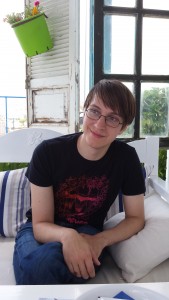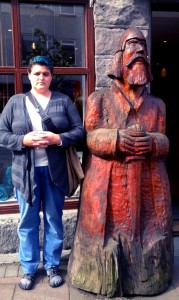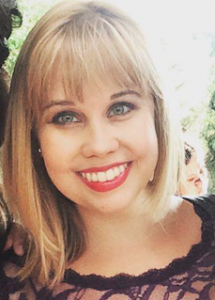
Post by Cheló̱na RSA president, Rebecca Alt
Students enrolled undergraduate rhetoric courses actively engage with some of the most urgent contemporary public discourses. Whether it is a more general education course, like COMM 200: Critical Thinking and Speaking, or ENGL 296: Reading and Writing Disability, as instructors we expect our students to critically examine public discourses in order to make and contribute arguments of their own. From foreign policy to the economy, to the Purple Line and campus safety, undergraduates in rhetoric courses all take part in various “unending conversations” (Burke, 110-111) about their lives in macro and micro contexts. The hope is that we succeed in teaching them how to participate in these conversations ethically, compassionately, and effectively.
Many students in our classes are fulfilling general education or minor requirements; thus, not all students arrive with the same amount of background knowledge on every, or any, given topic. Though challenging, I believe this is ultimately a productive inequality wherein collaborative reasoning can flourish and our students can build on each other’s strengths. One way to promote this kind of joint reasoning is by teaching a classical rhetorical method: Stasis Theory.
SO WHAT IS STASIS THEORY?
Though the exact origins of stasis theory are contested, it is believed that Aristotle and Hermagoras developed this method of inquiry which was later refined by Cicero, Quintilian, and Hermogenes (Purdue OWL). In the classical era, it was primarily a tool for invention used in forensic settings (Fahnestock & Secor, 1985). Contemporarily, we can think of the stases as a practical way of categorizing arguments or points of contention, ultimately helping a reasoner arrive at a krisis, or a judgment, about a particular issue. (Corbett & Eberly, 2000). The modern system, developed by Fahnestock and Secor, consists of the following questions:
- Fact – what happened? What do we know about X?
- Bob saw Dave walking on his property late at night.
- Bob did not invite Dan to his property.
- Dave seemed upset.
- Definition – what is its nature/what can we call it?
- Trespassing is defined as entering a landowner’s property without permission.
- Someone who is upset might be hurt.
- Cause/Consequence (Effect) – how did this happen?/what is at stake?
- Perhaps Dave was intoxicated.
- Something might have happened to upset Dave.
- Dave could have caused property damage or hurt himself.
- Quality/Value – is X just, fair?
- Trespassing is against the law; it is wrong.
- Trespassing is creepy. Drunkenness is creepy.
- Dave is vulnerable if he is in danger.
- Procedure/Policy – how should we proceed?
- Dave should be fined because he was trespassing.
- Dave should be taken to the hospital for a physical evaluation.
Ideally, the arguer interested in a problem or issue will begin at the primary stasis, fact/conjecture. Then, much like a detective, s/he searchers for information about and interrogates the problem itself. For example, if the College Park police department receives a report about this potential trespassing incident, the officers begin to investigate the “crime scene.” They collect relevant observations, narratives, and expressions in order to piece together what happened (Corbett & Eberly). They draw on surveillance footage, eyewitness accounts, and other clues. Once the police officers establish the facts of the case, they can determine if it was trespassing, or maybe Dan was lost, or even hurt and needed help. Once the definition of the incident is determined, the process of understanding the causes and consequences, quality, and procedures can begin. In any case, the last three levels of stasis are entirely contingent upon the first two. And, like most rhetorical concepts, the consensus or agreement at any level of stasis is field-dependent (Toulmin): contingent upon the context, the audience, and the time.
Any public exigence should be treated the same way. Before one decides whether or not building a wall between the United States and Mexico is the right course of action, s/he must first establish the facts of the case, the nature of the problem (definition), the causes and consequences, and the quality. On this topic, the student of rhetoric conducts academic research, analyzes audience, identifies common assumptions or topoi, and looks for personal stories and anecdotes. Given the facts related to this issue, the qualities ascribed to it, and the stakes, building a wall might not be the best possible course of action. Whatever topics our students work on independently or discuss collaboratively, this “method” should be emphasized.
In our basic oral communication courses, we call this process research. However, I prefer to think of it as investigative invention – students first ask the question, “What do we know about X?” before engaging in the rigorous investigation at the stasis of fact/conjecture. It’s more than “finding sources” to “support your point” – it is about coming to an understanding of the basic aspects of the problem. Chaïm Perelman believed that in an argument situation – with two interlocutors or a speaker and audience – “contact of minds” could be achieved through the establishment of common ground (The New Rhetoric); this “mind contact” was necessary for argumentation to begin. We often take “facts” for granted as just a “part of logos” or “sources,” but the process or dynamis of discovering these facts is a crucial part of rhetorical invention – for Aristotle, for “observing in any given case all the available means of persuasion.”
Deliberation—with oneself or with others—at each level of stasis is an effective method for encouraging our students to engage in more reasoned and ethical judgments in their practical discourse. True to its Latin translation, “stasis” means “stop.” When I explain this concept to my students in the courses I teach, I emphasize how important it is to do just that: stop. Public debates often grow heated, and usually the fastest and loudest one gets the most airtime. But to approach an urgent problem with a mindset that we don’t know everything or that definitions might change and values are field-dependent is to be a more ethically engaged citizen, which is a very important objective of a rhetorical education.
GREAT, SO HOW DO I TEACH STASIS THEORY?
There are a variety of ways to implement this theoretical frame into class meetings on a regular basis. An instructor can plan a dynamic lecture followed by group discussion on a case or cases, or design a more formal Problem-Based Learning Day that requires deeper investigation into an issue (first providing students with the theoretical context of the assignment). Here is a detailed lesson plan with learning outcomes, materials, and procedural details for a Problem-Based Learning Day.
Special thanks to member Cameron Mozafari, who contributed helpful and necessary clarifying information to improve this post.
References
Brizee, A. Stasis theory. Purdue Owl. https://owl.english.purdue.edu/owl/resource/736/1/
Burke, K. (1941). The Philosophy of Literary Form: Studies in Symbolic Action Third Edition. Berkeley: University of California Press.
Corbett, E. P.J., & Eberly, R. A. (2000). The Elements of Reasoning 2nd Edition. Boston: Allyn & Bacon.
Fahnestock, J., & Secor, M. (1985). Toward a modern version of stasis theory. In C. Knueppper (Ed.), Oldspeak/newspeak: Rhetorical transformation (pp. 217-226). Arlington, TX: NCTE.
Perelman, C., & Olbrechts-Tyteca, L. (1969). The New Rhetoric. Notre Dame, IN: University of Notre Dame Press.
Toulmin, S. (2000). The Uses of Argument. Cambridge: Cambridge University Press.



